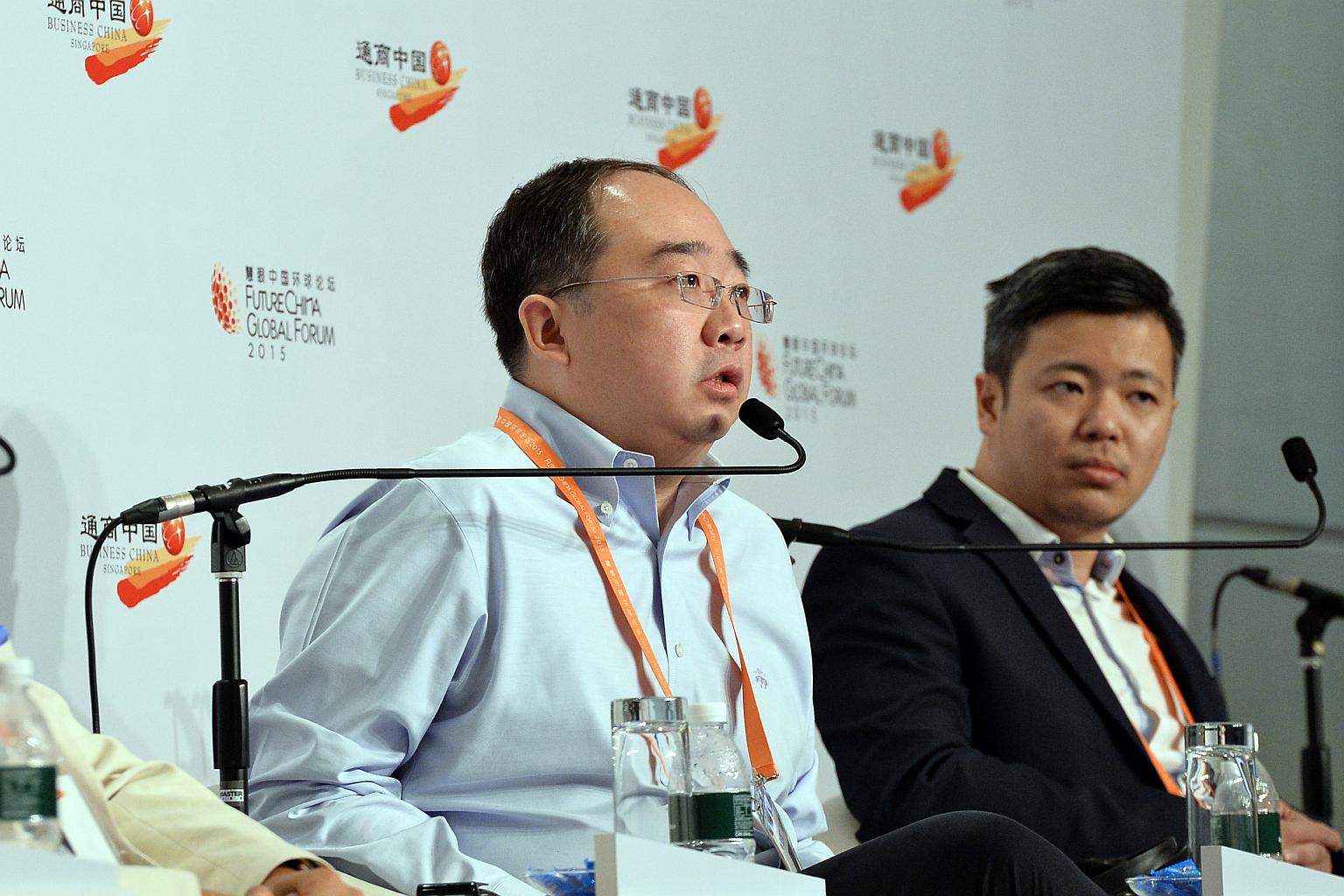Chinese Internet sector has changed, says former-executive of Qihoo 360
Sign up now: Get ST's newsletters delivered to your inbox

APUS Group CEO Tao Li speaking about the Internet sector in China at a panel discussion on entrepreneurship at the FutureChina Global Forum 2015.
PHOTO: BUSINESS CHINA
SINGAPORE - The Internet sector in China has changed structurally and Chinese Internet firms have to change their growth strategies, says a former high-level executive of Qihoo 360, a Chinese Internet security company known for its anti-virus software.
Mr Tao Li, who is now chief executive of APUS Group, an Android application development company he founded last year, said Chinese Internet-service companies now focus on facilitating daily activities, like shopping and ordering food, online. He was speaking at a panel discussion on entrepreneurship in China on Tuesday.
He said that unlike in the past, there have been limited opportunities since first half of 2014 for firms providing Internet platforms to grow. Such platforms are online sites on which consumers can perform activities like buying and selling, chatting, and searching for information.
Today in China, one can arrange online a specific time and place to pick up one's food, or even meet a masseur, he said at the FutureChina Global Forum 2015. The two-day forum, which ended on Tuesday, has attracted business executives and government officials from around the world, and academic experts on China-related issues.
Between 2007 to 2014, Chinese companies that provided such platforms, such as Alibaba and Baidu, took advantage of the growing number of Internet users and grew tremendously, Mr Li said.
The market size of Internet users in China, however, had stabilized around 800 to 900 million since the first half of 2014, limiting such growth opportunities, he said.
Companies have as a result also begun providing services to countries where Internet services are less advanced, such as Asean countries, India, and Russia, he said. His firm, for instance, was looking to provide mobile Internet and smartphones services internationally.
In the past few years, many entrepreneurs and startups have emerged in China. They have been identified as a future source of economic growth for the country.
Mr Li also noted that companies now had to respond quickly to consumer needs, which were changing more rapidly.
While in the past, product requirement gathering, design and packaging were carried out one after another, these were now carried out in unison and more quickly.
To keeps track of consumer needs and taste, APUS monitors feedback on its products posted online, he said.
"APUS has three million fans on Facebook, and a few million fans on Google Plus. Every day tens of millions of fans are giving us feedback on products and suggestions for improvement".
Other panellists spoke on how Chinese entrepreneurs could leverage on the Internet, the differences between the older and newer generation of entrepreneurs, and the difficulties of entrepreneurship.
jkoh@sph.com.sg


